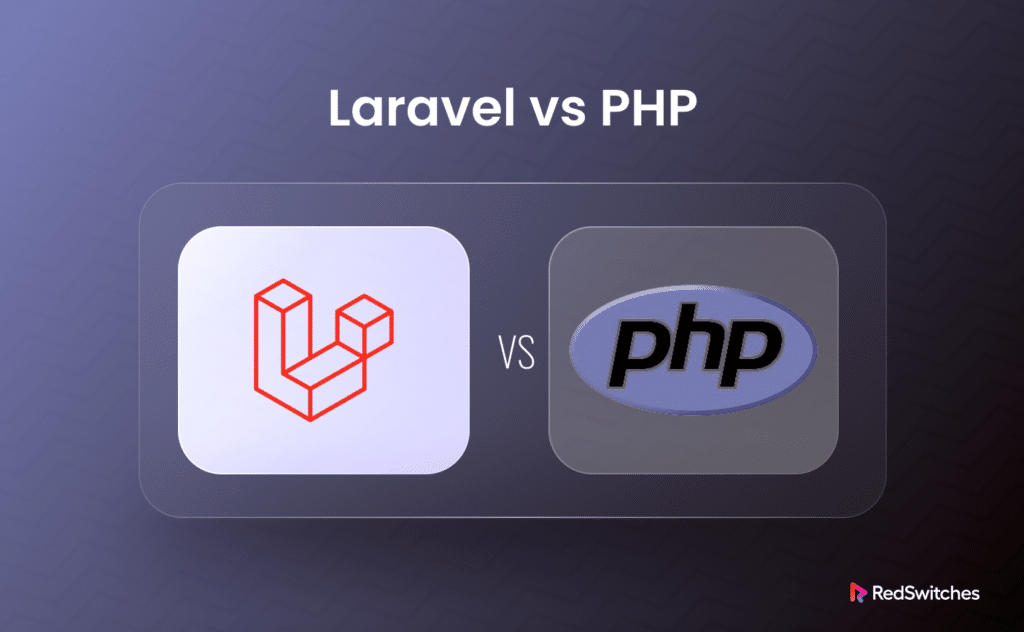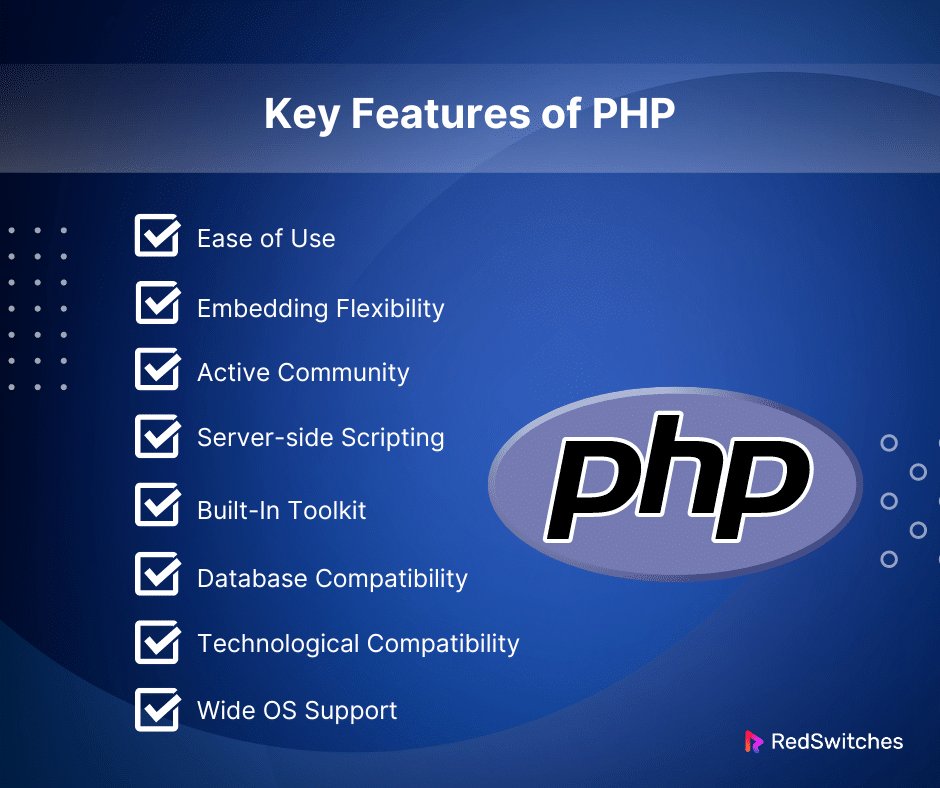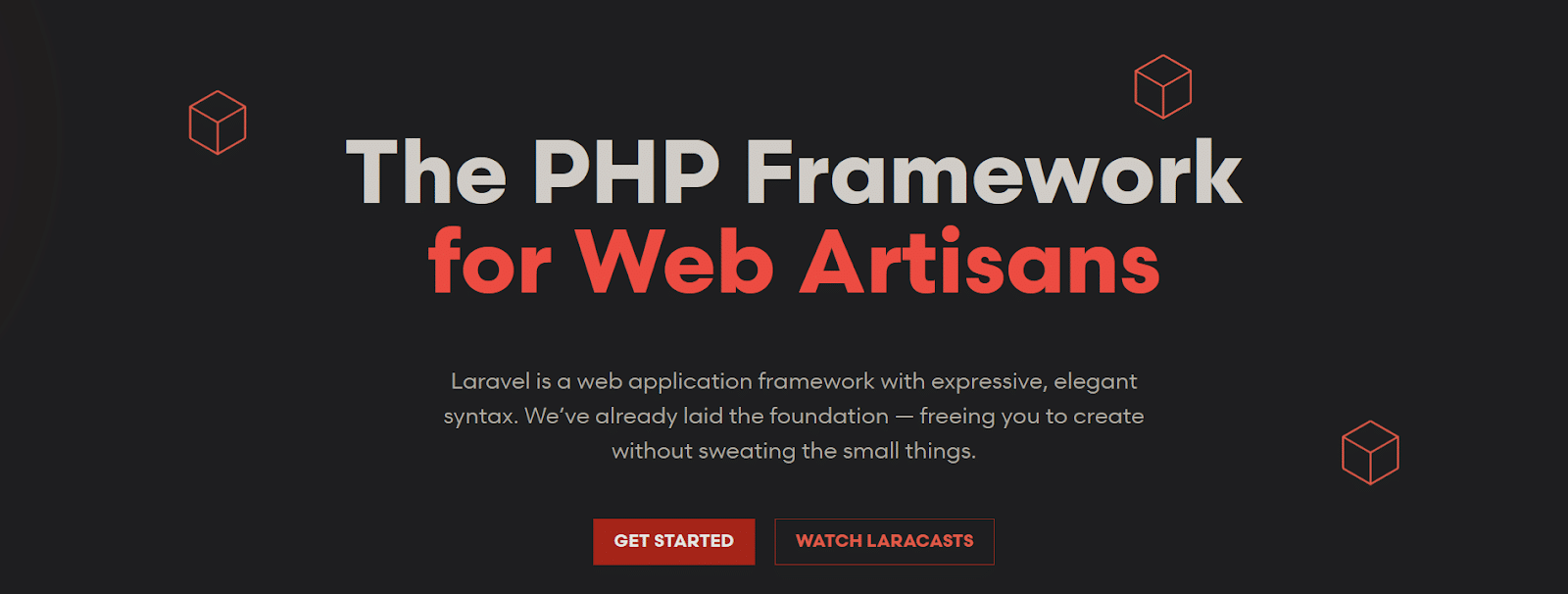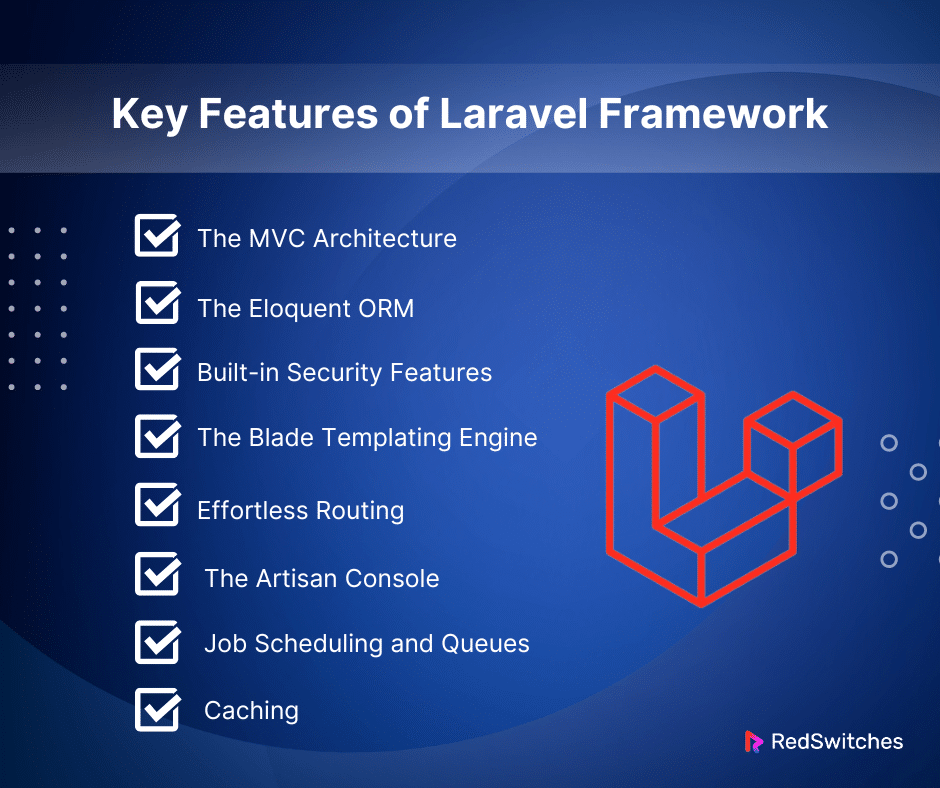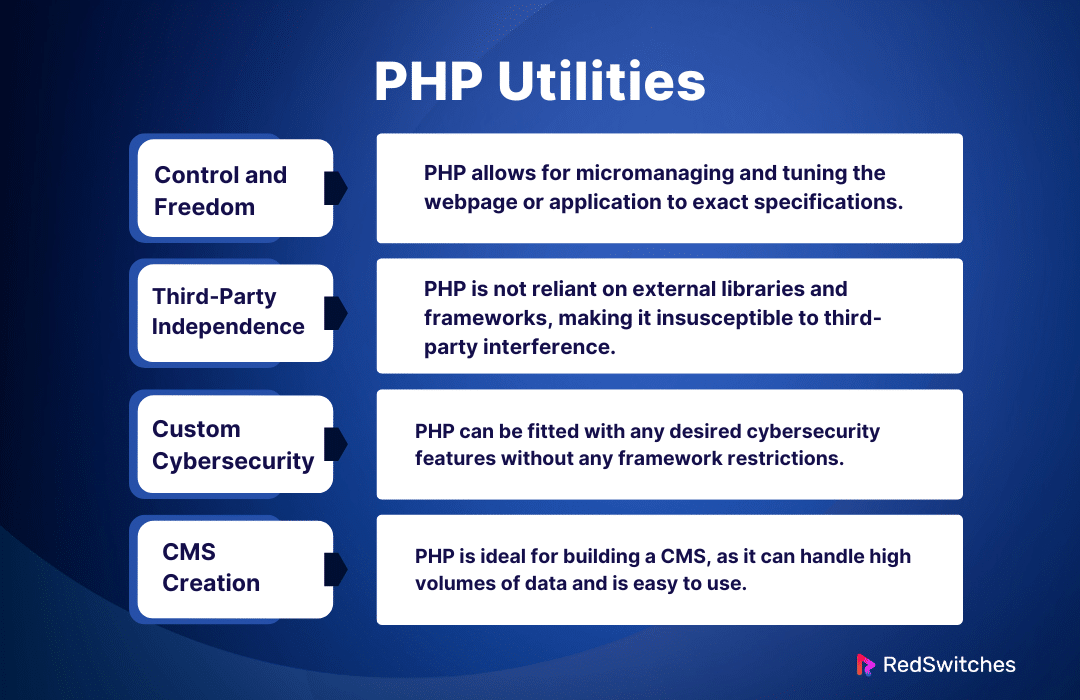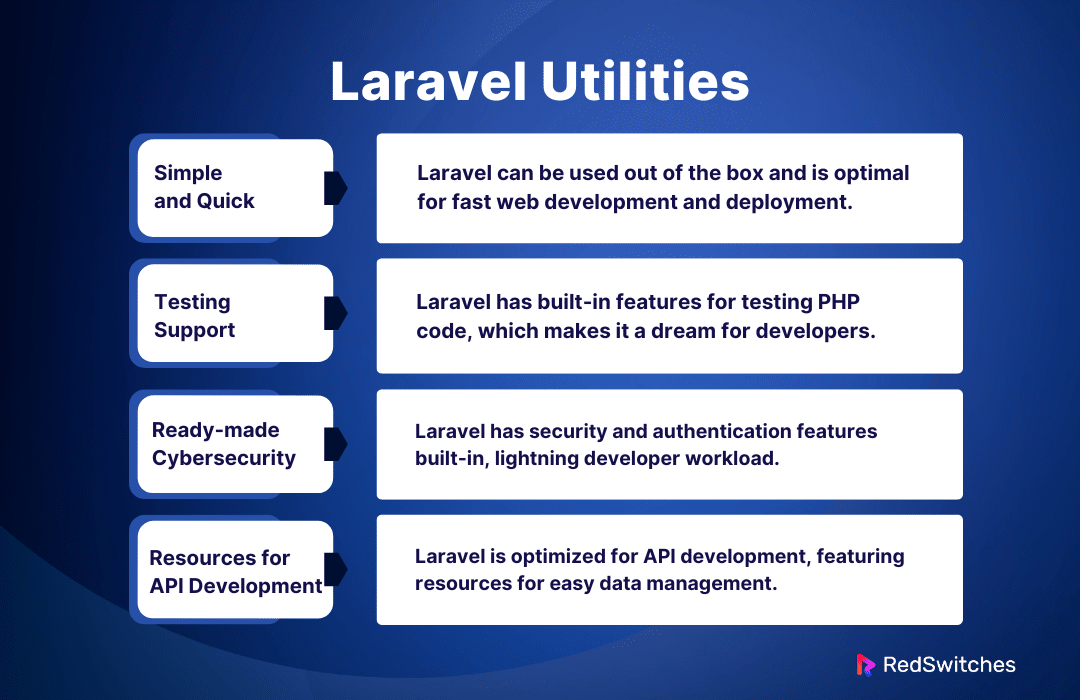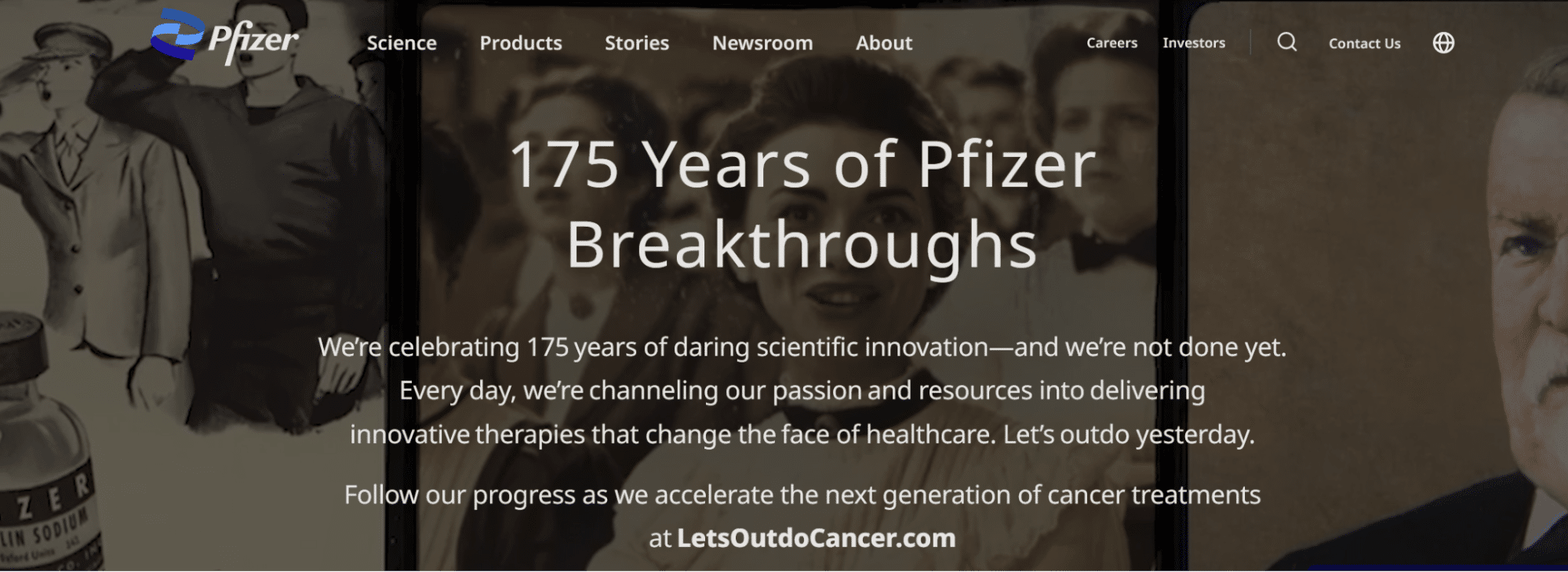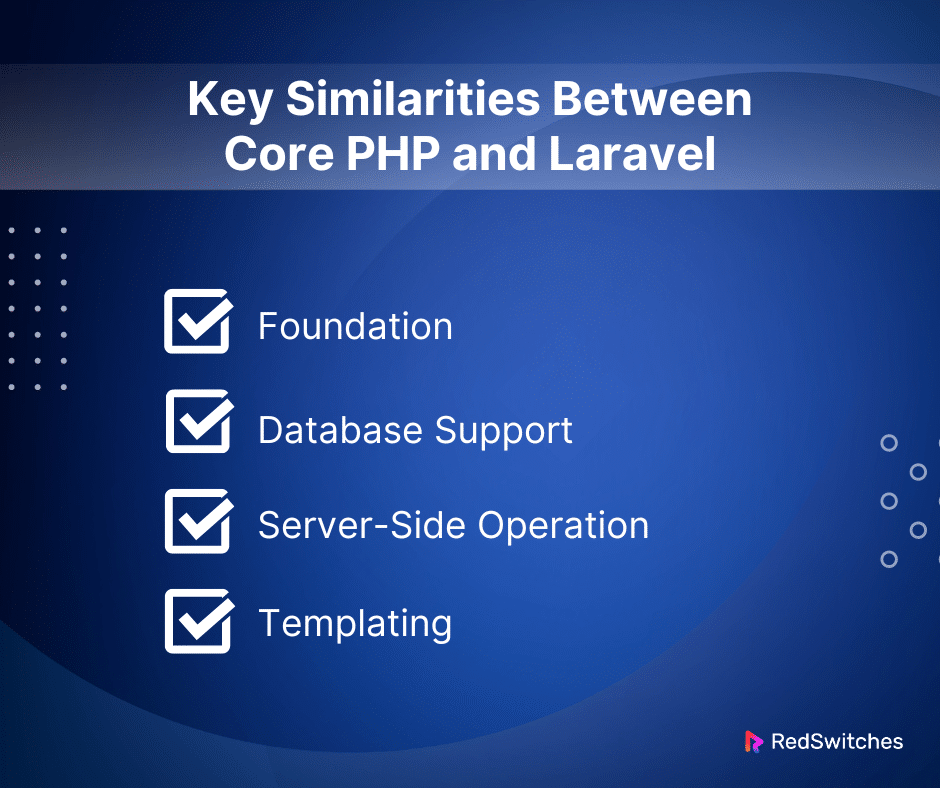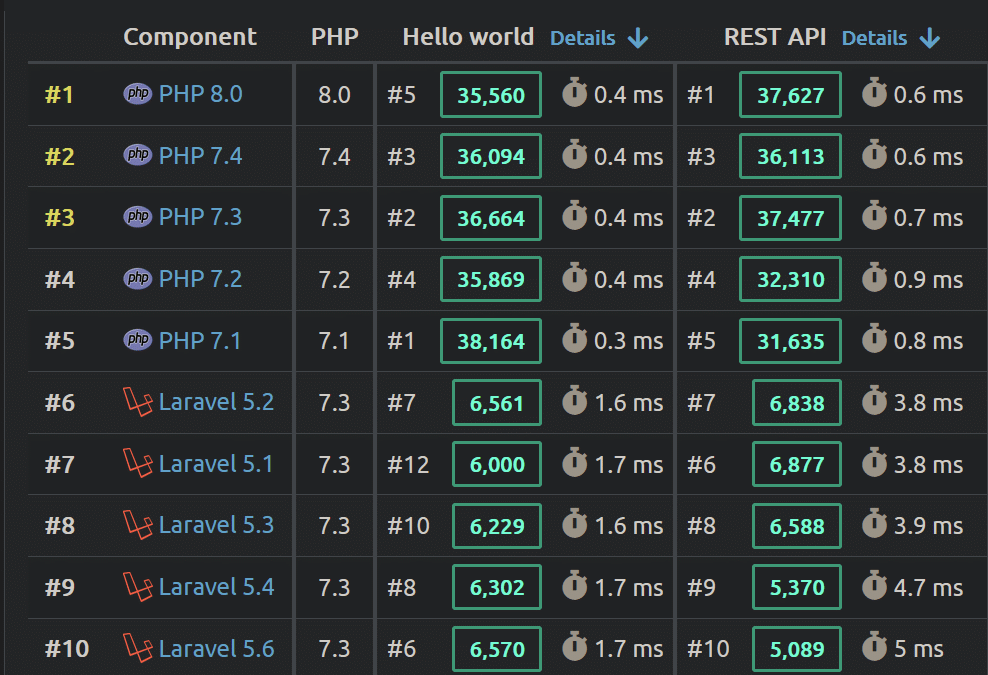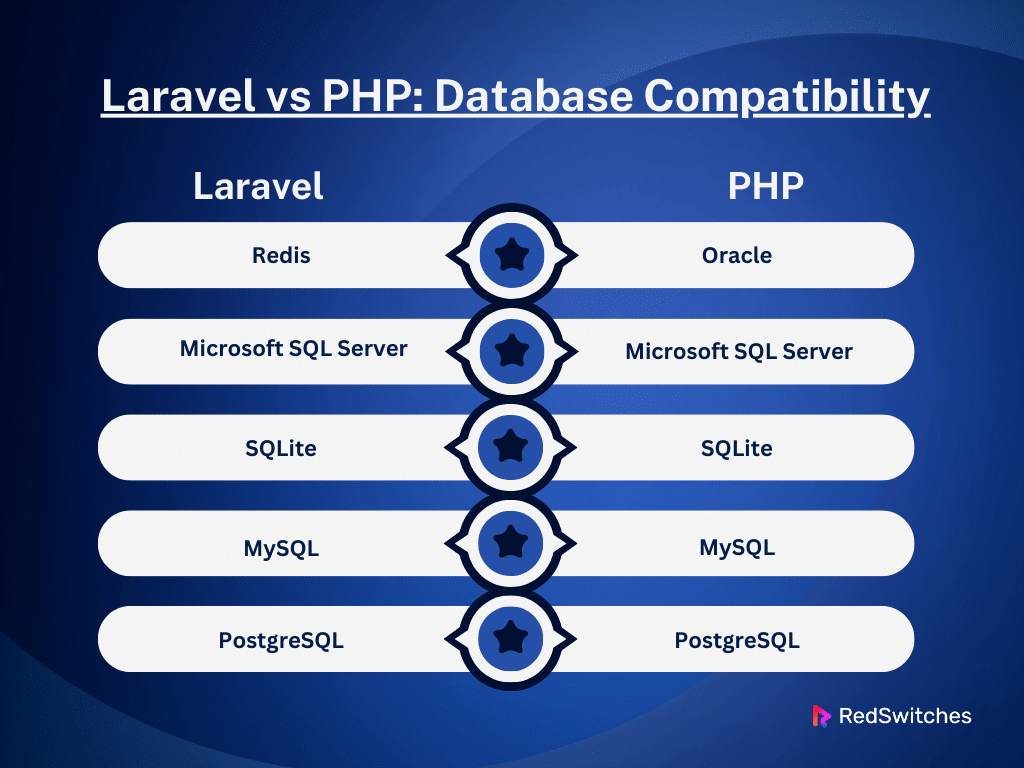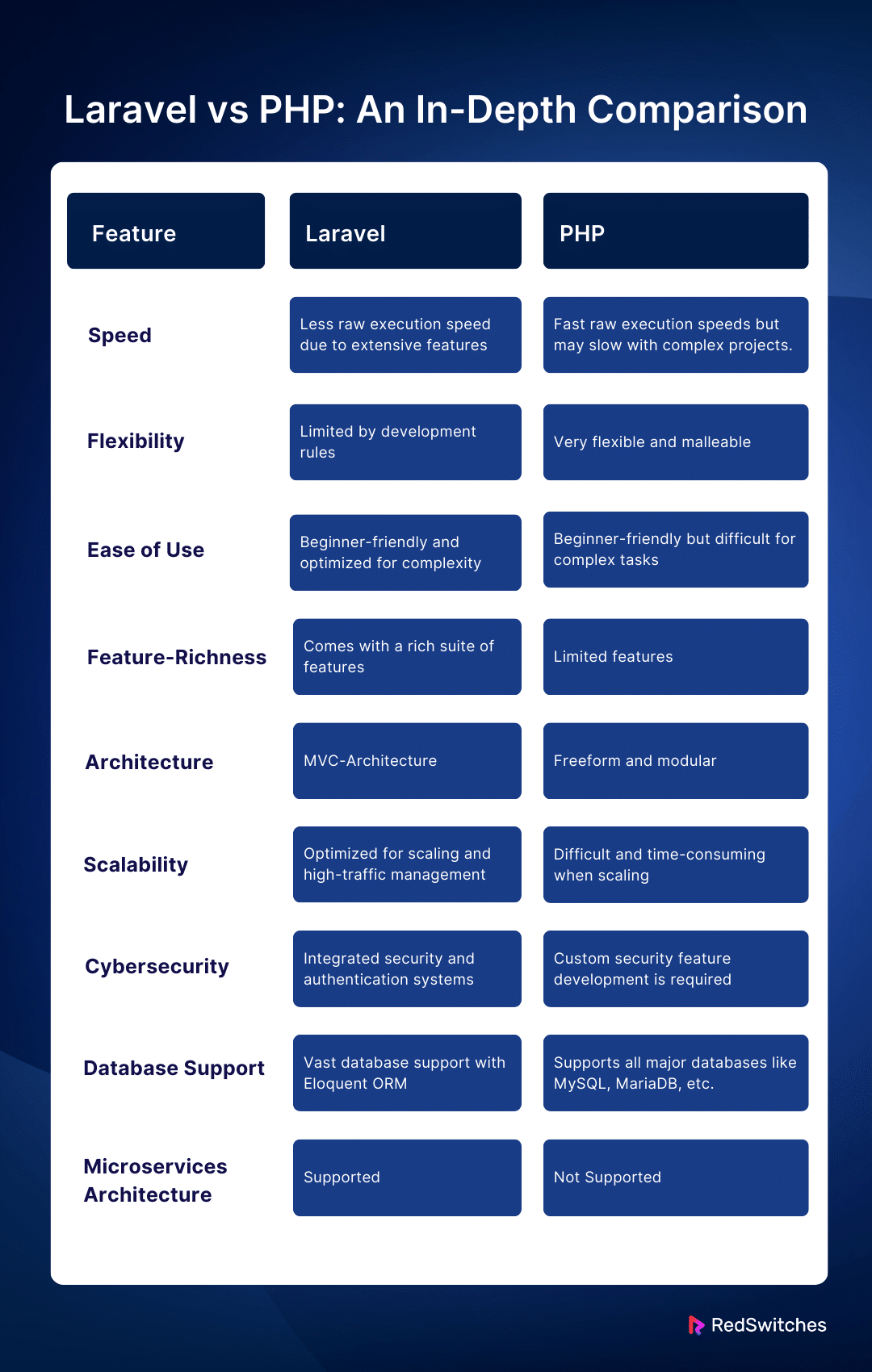Key Takeaways
- PHP and Laravel are server-side scripting languages for web page and web app development.
- Laravel and PHP have emerged as leaders in the web development space.
- PHP is the raw scripting language, while Laravel is a PHP-based framework.
- PHP is light on features but allows for significant customization and development control.
- Laravel is limited by its MVC architecture in exchange for a richer feature set.
- Laravel vs PHP performance and speed benchmarks give PHP an edge in 2024, but the gap closes significantly in real-world use scenarios.
- PHP is more complex and time-consuming for developers than Laravel.
- Testing and problem-solving are easier on Laravel, while PHP often forces developers to invent their own solutions.
- PHP does not come with built-in security features, while Laravel does.
- Small businesses and developers best use PHP, while Laravel suits larger, scaling businesses.
- PHP and Laravel are neck and neck in direct comparison, with odds tilting in favor based on individual needs.
PHP has long dominated the back-ends of the internet, with 76.4% of all websites currently running on PHP on their dedicated servers. Given its storied history, it is to be expected that over the years many different PHP-based frameworks would pop up. One such framework is Laravel, one of the subjects of today’s discussion.
The other subject of today’s discussion is PHP itself. More accurately, the raw programming language—often referred to as Core PHP—makes up the other half of the discussion. With times and technology changing as quickly as they do,
organizations and developers alike are faced with countless choices every day. One such choice is the Laravel vs PHP question.
Despite the lengthy preamble, slipping into a flood of technological jargon would not be helpful. Instead, let’s take a step back and start from the top. By the end, you should have a crystal clear idea of these languages and everything they entail, empowering you to decide for yourself who wins the debate of Laravel vs PHP.
Table Of Contents
- Key Takeaways
- What is PHP?
- Key Features of PHP
- What is Laravel Framework?
- Key Features of Laravel Framework
- Laravel Vs PHP: Utilities
- Companies Using Core PHP Vs Laravel
- Key Similarities Between Core PHP and Laravel
- Laravel vs PHP: An In-Depth Comparison
- Laravel vs PHP: Speed
- Laravel vs PHP: Performance Benchmarks
- Laravel vs PHP: Flexibility
- Laravel vs PHP: Web App Development Difficulty
- Laravel vs PHP: Functions and Features
- Laravel vs PHP: Structure and Architecture
- Laravel vs PHP: Application Scalability
- Laravel vs PHP: Data Security and Encryption
- Laravel vs PHP: Database Compatibility
- Laravel vs PHP: Microservices Architecture
- Choosing Between Laravel and PHP for Your Next Project
- Conclusion
- FAQs
What is PHP?
Image Credit: Freepik
PHP is an acronym for “PHP: Hypertext Preprocessor.” Originally standing for Personal Home Page, PHP has changed with the times. Today, PHP is one of the most popular choices for dedicated server-side website programming. Invented in 1994 by Rasmus Lerdorf, it took the world by storm for its innovative server-side rendering. Many websites and applications currently utilize PHP or one of its derivative frameworks on their dedicated servers.
Curious about what the latest versions of PHP offer? Check out our detailed guide here: PHP Latest Versions and More: Exploring the Web’s Powerhouse.
What is the Difference Between PHP and Core PHP?
For this discussion, however, we are going to talk about Core PHP. Core PHP is the basic, essential version of PHP. It excludes any third-party libraries or frameworks. Core PHP and PHP are not functionally different, with the former being the commonly used term for PHP without anything extra.
With that distinction cleared up, let’s move on. This version of PHP is all about using the features built into the PHP scripting language. You may wonder why anyone would use the barebones version of PHP vs. Laravel and other frameworks. Despite technically having fewer features, there are quite a few reasons why you may want to stick to PHP.
Key Features of PHP
Let’s quickly review the list of key features PHP offers in its purest form. That should help better illustrate why Laravel vs PHP is an important debate. PHP still matters and is not outdated or underpowered by any means.
Ease of Use
Core PHP is considered an entry-level programming language. Almost every decent programmer has used PHP in some fashion, making it one of the most refined languages out there. PHP’s strength lies in its straightforward, forgiving syntax and easy integration with web servers. PHP’s beginner-friendly reputation also entails a constructive community open to helping solve problems.
Embedding Flexibility
PHP boasts the ability to embed within HTML code directly. It can also easily be used with several web frameworks and templating engines. A templating engine is a web development mechanism that stores pre-made templates of HTML webpage data. When a client opens a webpage, the template is loaded and filled in with the relevant information and sent to the client’s browser.
Active Community
PHP has a sprawling community of developers and programmers who constantly work to improve each other and PHP. The community’s inclusive nature allows anyone to join and start their coding journey.
Server-side Scripting
As an open-source scripting language, PHP executes scripts on dedicated servers and sends only the result back to the client. All the data processing is done server-side, with the results in HTML form output to the client.
For example, if a client accesses a webpage, all the back-end workings needed to render that webpage are done on the website’s dedicated server. The client does not see any programming mumbo jumbo on their end and is given the result they requested.
Built-In Toolkit
PHP has all the necessary built-in capabilities. Everything can be handled out of the box, from form data management to session administration. Developers do not have to scour the internet to find third-party solutions. Problems in PHP have their solutions in PHP.
Database Compatibility
PHP can seamlessly integrate with a wide variety of databases, such as MySQl, Oracle, Microsoft SQL server, and more.
Technological Compatibility
Despite being old and having many derivatives, PHP continues to be updated and maintains compatibility with recent technologies. Developers need not worry about suspended support.
Wide Operating System Support
PHP is compatible with the most popular operating systems on the market today. Linux, Windows, and Mac are all open to PHP, making it versatile and mobile.
What is Laravel Framework?
Image Credit: Laravel
Laravel is an open-source framework based on PHP that is used worldwide in web application development for its robust and rich features. Laravel was developed by Taylor Otwell in 2011, and has since been a staple of the programming world.
Imagine Laravel vs PHP as a comparison between Lego sets. PHP is the all-ages general Lego set you see in a toy store. Now, think of Laravel as one of those specialized Lego sets custom-made to build a pirate ship or car. That’s the fundamental difference between the two.
The Laravel framework mixes the programming power of PHP with the capabilities of existing PHP frameworks like CodeIgniter to deliver a high-octane web development solution. Rather than build web applications from scratch, developers can grab pre-existing components and fit them into their projects.
Laravel vs PHP ends up a complex discussion precisely because Laravel extends PHP by providing a framework with additional features and structure.
Key Features of Laravel Framework
Laravel brings with it a suite of innovative features to make development easy and interesting. Here are some of the notable ones to look out for:
The MVC Architecture
Unlike PHP’s free-form nature, Laravel is built on the Model-View-Controller (MVC) architecture. This architecture allows developers to work on the various parts of the application simultaneously without any clashes. It separates the application’s presentation and logic, providing a clear view of every facet.
The MVC architecture also brings with it many extra features that streamline development. Laravel’s ecosystem is very versatile and has tools for most scenarios developers face.
The Eloquent ORM
Laravel’s version of Object-Relational Mapper (ORM) is named Eloquent. Eloquent facilitates easy interaction with databases. Essentially, Eloquent allows developers to make database queries in PHP syntax directly. This is incredible for accessibility, as every developer is intuitively familiar with PHP today.
Built-in Security Features
While protections from SQL injections can be added to PHP, they are not present by default. Laravel removes this roadblock, providing integrated security features like authentication and input validation. It is a full package with protection against threats like SQL injections and Cross-site Scripting (XSS).
The Blade Templating Engine
Laravel’s templating engine, Blade, is an incredible asset for developers. It allows writing HTML views in plain PHP code, streamlining the development process. Blade also includes a plethora of quick shortcuts to common PHP functions. It stores templates in PHP, which makes them optimal for performance and fast rendering.
Effortless Routing
Routing is effortless to manage in Laravel. It allows you to seamlessly define routes, middleware, route parameters, and grouped routes on your server. Particular activities, such as API contact or email notifications, can be linked to specific URLs. These links make the web processing logical and easy to understand and modify.
The Artisan Console
Laravel’s Artisan Console is a formidable automation tool for developers. Developers can automate many redundant and mundane programming tasks using the Artisan Console. Whether seed generation or database migration, Laravel won’t force your developers to do it manually. Laravel is a prime choice for applications requiring extensive coding work on tight deadlines. Devs and companies alike love the Artisan Console for workload management.
Job Scheduling and Queues
Laravel offers developers the ability to schedule a time-consuming job at a later time. This boosts the application’s responsiveness to the user, as a time-taking job is offloaded to a less busy time. Laravel’s queue services support a wide selection of backends like Amazon SQS and Redis.
Caching
Laravel can temporarily cache frequently needed data, allowing for smaller load times and boosting performance and responsiveness. By caching the data, there is no longer a need to recompute the same information constantly, which saves server resources. These resources can then be used for other tasks, enhancing overall performance.
Laravel Vs PHP: Utilities
PHP offers a solid foundation, but Laravel goes the extra mile with convenient utilities. This section will delve into how Laravel and PHP’s utilities make development notably easier.
PHP Utilities
PHP offers a lot of utility to developers, with some of the standouts being:
Maximum Control and Freedom
One of the significant reasons why PHP is so useful is the level of control it offers programmers and developers. Instead of being bound to the whims of a premade framework like Laravel, pure PHP can be directly micromanaged and customized to fit the exact needs of a website.
Third-Party Independence
PHP is also quite popular because of its detachment from third-party tinkering. Being open-source, developers know exactly what they are getting with PHP. No surprises arise when using PHP; things don’t break down because of a third-party application or library failure.
Customizable Cybersecurity
PHP allows developers to build custom cybersecurity features into a webpage or application. While PHP does not have built-in protections for things like SQL Injections, developers can just add whatever cybersecurity they want to their dedicated servers without any roadblocks.
Content Management System Creation
PHP has become the go-to scripting language for CMS creation due to its ease of access and use. For example, WordPress, which makes up 43.3% of all websites, is written in PHP.
Laravel Utilities
Laravel is no slouch in the utilities department, giving developers many reasons to choose it:
Simple and Quick
Laravel is optimal for quick and simple development. PHP requires writing and testing code from scratch, while Laravel’s MVC architecture allows pre-made components to be mixed and matched for quick execution. Laravel trade’s higher control and freedom for quicker and smoother web development.
Testing Support
Laravel was made with testing as a core feature for developer assistance. Developers can test their code with PHPUnit, which comes built-in with Laravel as a phpunit.xml file. Laravel also includes extensive support and help for HTTPS requesting and app usage. Code made with Laravel is easy to understand and work with.
Ready-made Cybersecurity
Being a PHP framework that provides built-in security, Laravel is a fantastic choice for developers who want standard security and authentication features. While It does not allow much tweaking and micromanagement of security features, it comes with them all integrated. This eases developers’ workload and lets them focus on designing a better user experience.
Resources for API Development
Laravel supports and offers API developers an easy way to convert models and model collections into JSON format. The data can then easily be returned to API consumers as JSON structures, making data transfer quick and easy.
Companies Using Core PHP Vs Laravel
We’ll delve into the diverse industries where both Core PHP and Laravel hold sway in modern websites and applications.
Companies Using Core PHP
PHP is used by some of the biggest companies today. Here are some key examples:
Meta
Image Credit: Freepik
Formerly known as Facebook, Meta is one of the largest corporations in the world today. The social media giant is currently managing over 3 billion active users, all on a platform built on PHP by Mark Zuckerberg in 2004. Since then, Meta has introduced HipHop Virtual Machine (HHVM), a virtual machine for PHP websites.
Also Read CakePHP vs Laravel: 13 Crucial Differences
HHVM has now become an industry standard for web applications, making Meta one of the primary champions for PHP. Aside from Meta, social media applications using Core PHP are everywhere these days.
Wikipedia
Wikipedia is another giant multi-million dollar website created using Core PHP. It uses the PHP language paired with a MySQL/MariaDB database to deliver the signature infodumps we all know and love. Because PHP can easily handle vast data, informational websites use PHP programming language a lot.
Etsy
The popular handicraft and DIY art marketplace Etsy also relies heavily on PHP for its web development. With PHP, Etsy can curate individual visitors’ feeds to best suit their preferences. PHP can create dynamic web pages that tune themselves to user search and purchase histories. This allows sellers and buyers to easily find each other without extensive searching.
Companies Using Laravel Framework
Let’s explore some of the major corporate players using Laravel in 2024:
Pfizer
Image Credit: Pfizer
Pfizer, one of the world’s leading pharmaceutical companies, uses the Laravel framework for building its website and application. Pfizer was among the leading forces that steered us out of the Covid-19 pandemic, making them beloved by almost everyone worldwide. Laravel allows Pfizer to defend sensitive medical and pharmaceutical data robustly and allows quick and easy system modification and enhancement.
The BBC
The British Broadcasting Corporation (BBC) is a long-standing television network beloved by many across the globe. The corporation boasts a wide range of media services, such as BBC News and BBC Entertainment. Many of these services use Laravel on the server side, which is quite a point in Laravel’s favor. If the BBC trusts Laravel for its dedicated servers, why not us?
9GAG
Many of us will recognize the popular user-generated content site 9GAG from our adventures online. What few realize is that 9GAG operates on Laravel infrastructure. Laravel brings us our favorite memes and gags right into our homes. Of course, all that laugh-craving traffic is managed with Laravel, ensuring nothing interrupts our joyful scrolling.
Also Read: Laravel vs Node JS: A Detailed Framework Comparison
Key Similarities Between Core PHP and Laravel
Despite being embroiled in the debate of Laravel vs PHP, we must not lose sight of the similarities between core PHP and laravel either.
Laravel vs PHP: Foundation
Both Core PHP and Laravel are built on the open-source PHP foundation. Laravel is a framework built on the PHP foundation, while PHP is the raw foundation itself. It’s like comparing English with German. English arose out of Germanic routes, much like Laravel spawned from PHP. Both use PHP syntax and have access to the core PHP functionality.
Laravel vs PHP: Database Support
Laravel and Core PHP offer comparable database support, with Laravel going the extra mile thanks to Eloquent ORM. Both languages can interact with MySQL, MariaDB, Microsoft SQL Server, Oracle, and all the other big names.
Laravel vs PHP: Server-Side Operation
Both Laravel and PHP are PHP-based and built for dedicated server-side operations. They process the code on the server side and output results in HTML to the client. It’s important to remember that good server hosting plays a critical role in development success. Even the best applications will be limited by sub-par hardware.
Laravel vs PHP: Templating
Laravel and PHP come equipped with robust templating ability. Laravel’s Blade templating engine offers several unique features, while PHP’s integrated templating engine offers everything needed for development.
Laravel vs PHP: An In-Depth Comparison
Now that we have thoroughly explored the key features, utilities, and users, it’s time for a detailed comparison between Core PHP and Laravel. We will pit both web development titans against each other in several contests to help you decide which is best for you. .
Interested in similar programming language and framework discussions? Check out our recent PHP vs Javascript comparison for some great insights.
Laravel vs PHP: Speed
When we compare Core PHP to Laravel speeds, the former is the faster of the two for one reason: simplicity. Frameworks such as Laravel have a ton of overhead considerations due to their use of external libraries and features. These extra features bog down the code, while PHP executes the raw code without much impediment.
The gap is bridged significantly when we factor in Laravel’s caching ability. This, paired with the built-in job scheduler, makes Laravel come very close to PHP in real business workload scenarios. The difference becomes barely noticeable depending on the quality of the code in use. For example, highly complex PHP code may take longer to process than Laravel.
Laravel vs PHP: Performance Benchmarks
Image Credit: PHP Benchmarks
PHP vastly outperformed Laravel in benchmarks, with a grand total of 37,627 instructions processed regularly. Laravel reached 1/6th of the same performance.
It must be remembered, however, that the performance difference between PHP and Laravel balances out drastically in the context of regular operations. Laravel may not keep up on the pure processing power side of things, but it more than makes up for it by being feature-rich. The performance disparity is mainly because of the many extra features Laravel offers compared to PHP’s raw instruction processing.
Laravel vs PHP: Flexibility
On Flexibility in Laravel vs PHP, PHP is the more flexible of the two. The sky is the limit with PHP, so long as developers have the time to make it happen. Because PHP is just the programming language itself, there’s nothing holding developers back from building whatever they need with it.
Laravel, however, is limited by its MVC architecture. It sacrifices some of the freedom granted by PHP to provide a more pleasurable developer experience. Instead of being able to do 10 niche tasks in 1000 hours, Laravel focuses on doing 100 standard tasks in the same timeframe. The verdict comes down to which you need more: niche or standard capability.
Laravel vs PHP: Web App Development Difficulty
Laravel, in many cases, is easier to use than PHP for development. Despite being the choice for beginners, PHP is by no means inherently easy. PHP empowers developers to create the features they want by themselves, but this comes at the cost of a significant amount of time, energy, and money. PHP development may not be the ideal option for business use, as it takes longer to get things done just right.
Laravel development, on the other hand, provides developers with special tools for getting things done. Even simple features like Eloquent ORM make development much easier and faster. Once we factor in the automation capabilities, it’s a point in favor of Laravel vs PHP.
Laravel vs PHP: Functions and Features
Laravel far exceeds PHP in the features department. PHP is exempt from all external support for this discussion, which means it cannot access systems like the Artisan Console or Eloquent ORM. The ability to automate redundant tasks and cache important data alone tips the scales toward Laravel vs PHP.
Laravel vs PHP: Structure and Architecture
PHP does not have a strict architecture and is more meant to be molded as needed by developers. Laravel, on the other hand, is a strict framework built on the MVC architecture. This limits developers’ options when configuring Laravel, but the overall configuration process becomes significantly simpler as a trade-off.
Laravel’s MVC architecture promotes organized code, ease of maintenance, and scalability. Its extensive ecosystem and libraries offer flexibility within this structure.
In the Laravel vs PHP comparison context, the verdict is a draw. Both structures offer different pros and cons. It ultimately comes down to personal preference and goal alignment.
Laravel vs PHP: Application Scalability
PHP was not built to be scaling-friendly. While it can be incredible for scalability and application enhancement, it is quite complex and challenging to manage. Developer skills play a huge role in successful PHP scaling stories.
Laravel was built with scalability as a feature. The framework allows for dynamic maneuvering and rapid scalability without much downtime. While there is less mobility in what is achievable compared to pure PHP, Laravel’s feature set balances the scales nicely.
Laravel vs PHP: Data Security and Encryption
Security is a big difference between the two. Laravel provides built-in authentication and encryption abilities far exceeding PHP’s security provisions. In exchange, developers can configure PHP to have a similar level of highly customized security at the expense of development time. Unauthorized access to Core PHP-based applications is more likely due to the lack of innate protection.
The answer for businesses debating Laravel vs PHP depends on how much security is needed. Social media sites like Facebook choose PHP to implement stringent personal data security measures. Users will not appreciate Facebook leaking their data, so Facebook has a vested interest in developing exclusive security features in PHP. Meanwhile, the BBC and its entertainment applications do not carry such important data and can function just fine with Laravel.
It’s all a matter of risk assessment when it comes to securing data on dedicated servers.
Laravel vs PHP: Database Compatibility
Laravel vs PHP is a difficult database compatibility comparison. Both offer a wide range of database support, and the significant difference lies in methodology. PHP utilizes built-in extensions to govern database interaction and management, while Laravel facilitates database relations through Eloquent ORM. The choice ultimately comes down to user requirements and project constraints.
Laravel vs PHP: Microservices Architecture
Building microservices architecture in Laravel vs PHP comes down to need. In this style, an application comprises small, separate, loosely paired services.
Laravel’s extensive eco-system provides developers everything they need to build the architecture. PHP needs third-party assistance to achieve the same goals, which defeats the purpose of comparing pure PHP vs Laravel.
Even when PHP is given the needed third-party tools, similar performance and complexity are hard to achieve. PHP, however, excels at building lightweight microservices architectures with the right resources.
Choosing Between Laravel and PHP for Your Next Project
Image Credits: Freepik
After much discussion and comparison, let’s talk about whether you should choose Laravel or PHP for your future projects.
When to Use Laravel
Laravel is incredible for getting things done quickly and efficiently. If you need the job done on a tight deadline, Laravel is the way to go. Laravel’s automation, caching, and routing capabilities can drastically reduce development time. Maintaining and troubleshooting Laravel-based applications is also very intuitive, reducing the number of things you need to worry about.
When to Use PHP
PHP is the way to go for highly specific and customized applications. For example, if you are a company handling a lot of sensitive data, you would want to go the extra mile for security features. PHP can be used to create such features from scratch and give you peace of mind. PHP is also great for building lightweight applications, as it is fast and responsive and does not require a lot of effort.
Conclusion
The conclusion everyone should walk away with from this Laravel vs PHP comparison is that the answer is never straightforward. After subjecting both languages to strict scrutiny, you should have a good understanding of the strengths and weaknesses of both.
There are several differences between core PHP and laravel, but they are both solid web development options. This comparison should serve as a good resource for understanding the two and empowering oneself to make an informed decision. Let us know whether you chose Core PHP or Laravel for your next project!
Speaking of making informed decisions, the importance of good hardware and server infrastructure cannot be understated. Whether you choose Laravel or Core PHP, it’s all for naught if the server is suboptimal.
RedSwitches Bare-Metal Servers offer a quick and easy fix to this problem. Leveraging RedSwitches‘ state-of-the-art server and cloud computing technology, maximize your gains no matter which side of the Laravel vs PHP debate you land on.
FAQs
Q. Do I need to learn the PHP framework for Laravel?
Laravel is an open-source PHP framework. Since Laravel is written in PHP, PHP knowledge is needed to write the actual lines of code. PHP is a scripting language perfect for starters. It is quite common for beginners to master PHP before developing proficiency in frameworks like Laravel.
Q. Is Laravel still in demand for web application development?
Laravel is still in demand in 2024 and has a sizable market share in the PHP framework landscape. In terms of the job market, plenty of clients are looking to hire Laravel developers. As a bonus, Laravel has a large and active community to help new developers.
Q. Core PHP vs Laravel for small businesses. Which is better?
PHP is a general-purpose scripting language, making it a good choice for small businesses. It is also more challenging to find a Laravel developer than a PHP developer. Laravel is better suited to scaling businesses that can afford to maintain it.
Q. What are some websites and applications using Core PHP?
Social media applications like Facebook and information hubs like Wikipedia use PHP the most for their server-side rendering needs. Websites ranging from blogs and e-commerce platforms to social networks and forums commonly use PHP due to its flexibility and wide range of functionalities.
Q. How do Laravel and Core PHP compare?
Laravel is a robust PHP-based web development framework that provides a diverse toolset and streamlined development path, whereas Core PHP provides more freedom to develop projects precisely to specifications.
Q. What are the cons of Laravel vs Core PHP?
While Laravel offers many features and a modular structure, it can be overkill for smaller projects and might deliver worse performance compared to Core PHP based lightweight applications.
Q. Why is Laravel considered a good choice for developers?
Laravel is a good choice because of its comprehensive ecosystem, including Eloquent ORM, Artisan Console, Blade templating engine, and easy-to-integrate packages. All of these features streamline complex web application development. The Community of PHP and Laravel are both very welcoming to developers.
Q. What are some differences between Core PHP and Laravel?
Core PHP allows direct scripting and provides basic functions. In contrast, Laravel uses a model-view-controller (MVC) architecture, offering a more organized approach and built-in security and data management functionalities.
Q. When should I hire a Laravel developer over a Core PHP developer?
You should hire a Laravel developer when your project requires complex functionalities, scalability, and rapid development that a framework like Laravel facilitates. These days, there is a Laravel developer in every corner waiting for an opportunity.
Q. What is the significance of PHP Data Objects (PDO) in PHP programming?
PHP Data Objects (PDO) provide a consistent interface for accessing databases in PHP, enabling developers to switch between different database systems without changing PHP code.
Q. How does Laravel protect applications from unauthorized access?
Laravel follows a layered architecture with built-in provisions to safeguard against common cyber vulnerabilities like SQL injection, cross-site scripting, and unauthorized access, enhancing security in Laravel-based applications.
